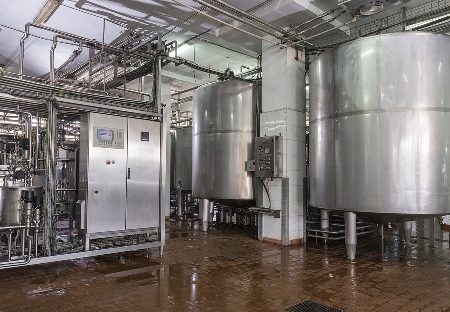All seven activity sub-indexes were below 50 points in April, with declines in sales (down 1.5 points to 44.7), new orders (up 1.6 points to 47.4), production (up 2.7 points to 49.3), supplier deliveries (down 0.4 points to 47.2) and stock levels (up 2.5 points to 45.9) indicative of very weak local demand. Manufacturing exports ended four months of expansion (down 4.3 points to 47.5), mainly due to a decline in food and beverages exports (previously the strongest sector).
The food & beverages sub-sector (down 4.1 points to 55.3) remained one of four manufacturing sub-sectors to expand in April, with non-metallic mineral products (down 2.9 points to 54.5), wood & paper products (up 5.1 points to 55.2) and printing & recorded media (up 2.8 points to 61.4) also continuing in positive territory.
Ai Group Chief Executive, Innes Willox, said: "Weak local demand continues to weigh heavily on Australian manufacturing. While there are benefits from strong residential construction activity, low interest rates, and the weaker Australian dollar, these are being outweighed by subdued local business investment in equipment, the ongoing drop in mining construction and the progressive closure of automotive assembly.
"While another cut in interest rates may help boost demand, budgetary measures, particularly those targeting increased investment are more likely to provide the lift the domestic economy needs," Willox said.
Key findings for April:
- The Australian PMI rose 1.8 points to 48.0 in March, indicating a fifth month in contraction.
- Four of the eight manufacturing sub-sectors expanded in March: food, beverages & tobacco (down 4.1 points to 55.3); non-metallic mineral products (down 2.9 points to 54.5); printing & recorded media (up 2.8 points to 61.4); and wood & paper products (up 5.1 points to 55.2).
- The machinery and equipment (up 2.5 points to 45.9); metal products (down 1.9 points to 42.4); petroleum, coal, chemicals & rubber products (up 3.6 points to 39.4); and the textiles, clothing & furniture (down 4.2 points to 44.4) sub-sectors all continued to contract this month.
- All seven activity sub-indexes contracted in April. Manufacturing production (up 2.7 points to 49.3) declined for a sixth month, new orders (up 1.6 points to 47.4) declined for a fifth month, and manufacturing sales (down 1.5 points to 44.7) recorded an eleventh consecutive month in contraction.
- After four months of expansion, the manufacturing exports sub-index fell 4.3 points to 47.5.
- Reflecting ongoing weak trading conditions, manufacturers reduced their supplier deliveries (down 0.4 points to 47.2) and stock levels (up 2.5 points to 45.9) for a third month in April.
- Manufacturing employment fell for a fourth month in April, albeit at a slower pace (up 2.1 points to 49.2).
After stabilising briefly in March, selling prices returned to contraction in April (down 4.5 points to 45.5). With input costs still elevated (down 4.3 points to 69.1) and the wages sub-index largely unchanged (up 0.3 points to 56.8), this points to ongoing margin pressures for manufacturers.






